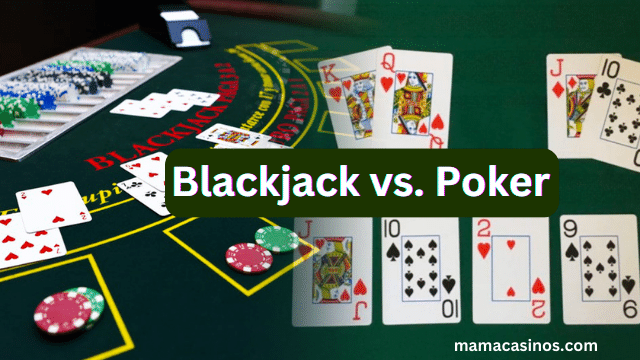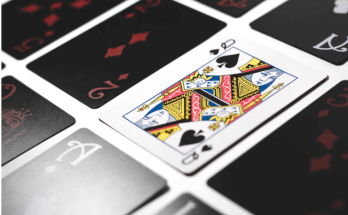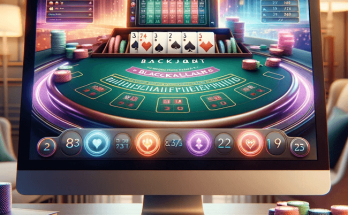When it comes to classic casino games, Blackjack and Poker often come to mind. Both games have been played for a very long time and have only grown in popularity over the years, each with its own dedicated fan base. If you’re looking to try your luck at the casino, you might be wondering which game is better suited for you. To help you make a decision, we’ve compared these two iconic games based on various aspects, such as skill level, strategy, social interaction, and potential winnings.
Skill Level and Learning Curve
Blackjack: Easy to Learn, Quick Gameplay
Blackjack, also known as 21, is a relatively simple game to learn. The basic objective of the game is to have a hand with a total value of 21 or as close to it as possible without exceeding the limit, all while beating the dealer’s hand. The game moves at a quick pace, making it an exciting and fast-paced option for beginners and experienced players alike.
Poker: More Complex, Requires a Deeper Understanding
Poker, on the other hand, has a steeper learning curve. There are numerous poker variants, with Texas Hold’em being the most popular. Players must understand hand rankings, betting structures, and psychology to excel in this game. Though the rules can be learned quickly, mastering poker strategy takes time and dedication.
Strategy and Decision Making
Blackjack: Limited Strategy, Lower Impact on Outcome
In Blackjack, the strategy is relatively simple and limited in scope. Players must decide whether to hit, stand, double down, or split based on the cards in their hand and the dealer’s upcard. Basic strategy charts, which outline the optimal move in any given situation, are readily available, allowing players to make informed decisions. However, the impact of these decisions on the outcome of the game is limited, as the dealer’s hidden card ultimately determines the result.
Poker: More Strategic Depth, Greater Influence on Outcome
Poker offers a greater level of strategic depth, as players must constantly adapt their gameplay based on their hand, their opponents’ behavior, and the community cards on the table. There is a wide range of strategies and styles in poker, including aggressive, passive, tight, and loose play. Players have more control over the outcome of the game, as bluffing and reading opponents are integral parts of the game, allowing skilled players to consistently win even with weaker hands. In addition, the use of promotional bonuses provided by the casinos such as the FanDuel no deposit bonus can also influence the outcome of the game.
Social Interaction
Blackjack: Limited Interaction, Player vs. Dealer
In a game of Blackjack, players mainly interact with the dealer, as they are competing against the house rather than other players. There is minimal conversation and collaboration at the table, with the focus being on individual decision-making. The atmosphere can be less intense and more relaxed than in poker, making it an ideal choice for those who prefer a less competitive environment.
Poker: Rich Interaction, Player vs. Player
Poker, on the other hand, fosters rich social interaction. Players are competing against each other, leading to more conversation, collaboration, and rivalry. The ability to read opponents and engage in psychological warfare is a crucial aspect of the game, creating a more intense and competitive atmosphere. If you enjoy outwitting your opponents and socializing at the table, poker may be the better choice for you.
Potential Winnings and Bankroll Management
Blackjack: Lower Risk, Steady Winnings
Blackjack offers lower risk and more steady winnings for players who follow a basic strategy. The house edge in Blackjack is relatively low, typically ranging from 0.5% to 2% when played optimally. This means that, over time, players can expect to win more consistently, albeit with smaller winnings. Bankroll management in Blackjack is straightforward, as bet sizes are generally consistent, and players can set loss limits to manage their funds effectively.
Poker: Higher Risk, Bigger Rewards
Poker, on the other hand, presents a higher risk but with the potential for bigger rewards. Skilled poker players can achieve long-term success and consistently earn substantial amounts of money. However, poker also involves more variance, meaning that players can experience significant winning and losing streaks. Bankroll management in poker is more complex, as players need to adjust their bet sizes and buy-ins based on their skill level, the competition, and their current financial situation.
Conclusion: Which Game Is Better for You?
Ultimately, the decision between Blackjack and Poker comes down to personal preferences and playstyle.
If you prefer a game that is easy to learn, quick-paced, and offers consistent, steady winnings with minimal risk, then Blackjack is the better choice for you. The game is ideal for players who enjoy a relaxed, less competitive atmosphere and straightforward decision-making.
On the other hand, if you enjoy a game with a higher level of strategic depth, more social interaction, and the potential for significant winnings, then Poker is the better option for you. Poker suits players who relish the challenge of outwitting opponents, mastering complex strategies, and embracing the risk associated with high-stakes gameplay.
Regardless of your choice, both Blackjack and Poker offer thrilling and entertaining experiences that can provide hours of enjoyment and the opportunity to win big. So, weigh the pros and cons of each game, and choose the one that best aligns with your preferences and goals as a player.




